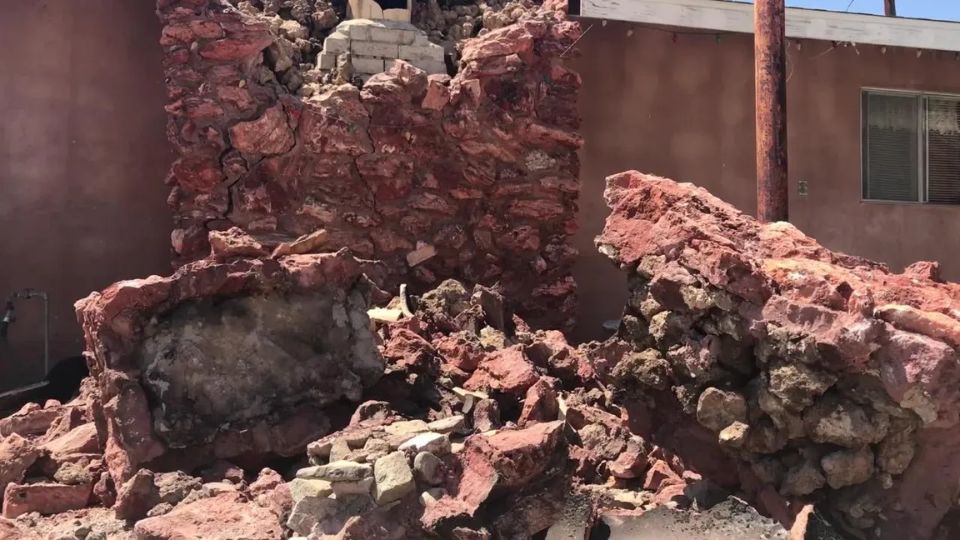On September 28, 1998, Pennsylvania had its biggest earthquake ever. It measured 5.2 on the Richter scale. The epicenter was found close to Pymatuning Lake in Crawford County, which is in the northwest part of the state. The earthquake caused some small damage to buildings, disrupted water wells, and one person got hurt. It also caused a number of smaller earthquakes that continued for several months. The earthquake was felt in distant places like New York, Ohio, Michigan, and Canada.
What caused the earthquake?
Pennsylvania doesn’t have a lot of earthquakes, but it can still experience them sometimes. The state is located in the Appalachian Plateau, which was created by the collision of tectonic plates a long time ago. When these collisions happen, they can cause faults and fractures in the earth’s crust. Sometimes, these faults can slip and cause earthquakes by releasing energy. The Pymatuning quake happened on one of these faults, called the Lake Erie-Lake Ontario fault system.
The cause of the earthquake is not yet fully understood, but some experts believe that human activities like mining, fracking, or water injection might have played a role in it. These activities can cause changes in stress and pressure underground, which could potentially cause or make earthquakes stronger. However, there is currently no solid evidence to prove this hypothesis, and further research is necessary to fully understand the impact of human-induced seismic activity in Pennsylvania.
What were the effects of the earthquake?
The Pymatuning quake was the strongest and most widely felt earthquake ever recorded in Pennsylvania. However, it did not cause significant damage or injuries. The earthquake was not very deep, only about 3 miles below the surface. This made it less likely to cause a lot of damage. The most frequent damages included walls with cracks, windows that were broken, chimneys that fell, and furniture that was toppled. As a safety measure, certain buildings like schools, churches, and hospitals were cleared out. The earthquake also impacted the water supply in the area. Many wells became cloudy, muddy, or completely dried up. Some people said that the water they drink has a different taste, smell, or color than before.
The earthquake also affected people’s mental and social well-being, as it caused fear, anxiety, and curiosity among the public. A lot of people were very surprised by the event because they didn’t think that Pennsylvania would have such a powerful earthquake. Some people believed it was either a bomb, a plane crash, or a thunderstorm.
Many people were very interested and curious about the phenomenon, and they wanted to find out more about it. The earthquake received a lot of attention from the media, both locally and nationally. It also led to discussions about being prepared for earthquakes and staying safe.
Also Read: This Biggest Earthquake in Florida History Shut Down the Entire State
What did we learn from the earthquake?
The Pymatuning earthquake was a unique and interesting event that taught us a few things about earthquakes in Pennsylvania. The information revealed that the state does experience earthquakes, but at a relatively low to moderate level of risk. The study also revealed that the state has a complicated and not well-known fault system, which could be affected by both natural and human factors.
It also revealed that the state is not well equipped for earthquakes, as many buildings and infrastructure are not built to withstand strong shaking. The study also revealed that the general public lacks knowledge and education about earthquakes. They require more awareness and guidance on how to respond to and deal with earthquakes.
The Pymatuning quake was a sudden event that made Pennsylvania realize that earthquakes can occur in any place and at any time, without any prior notice. It also gave a chance for scientists, engineers, policymakers, and citizens to collaborate and enhance the state’s ability to withstand and prepare for earthquakes. Studying the earthquake and its effects can help us learn more about the risk of earthquakes and how vulnerable the state is to them. This knowledge can then be used to take steps to reduce the risk and vulnerability.
We can improve earthquake safety and security in the state by educating the public, providing resources, and sharing information to increase awareness and preparedness. To make sure Pennsylvania is prepared for the next major earthquake, no matter when or where it happens.



Leave a Reply